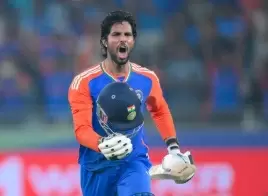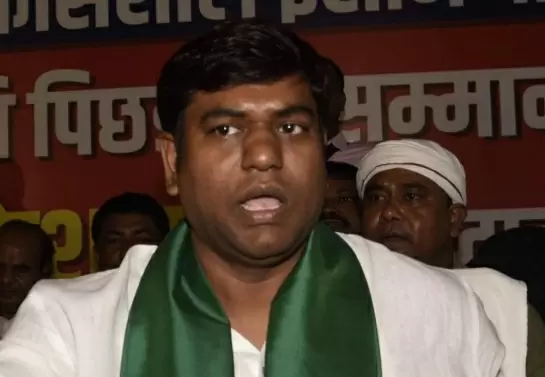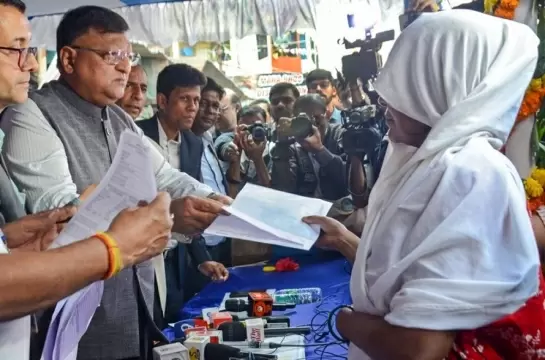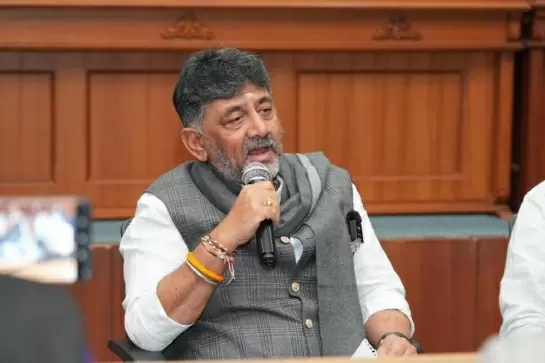Stepping on the accelerator for better livelihood opportunities
07-October-2011
Vol 2 | Issue 40
Livelihood choices for young women with modest educational qualifications tend to be both limited and limiting, which is why the option of young women training to be drivers appears intriguing.
Small initiatives in metropolitan India are being made in this direction, driven largely by two trends. There is a growing section of women professionals, keeping late hours and looking for the security of hiring competent women drivers and there are a large number of young women with modest education from under privileged backgrounds who are in search of more remunerative professional choices.
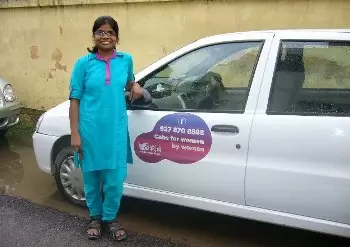 |
|
On the road to change: Women from under-privileged backgrounds are turning professional drivers and breaking the male bastion (Photos: WFS)
|
Take Chandni, who comes from Govindpuri, a resettlement area in the heart of Delhi. She may have been stitching salwars (loose pants) at Rs 25 a piece, but says the 21-year-old, “I was attending sewing classes and hating them. That’s when someone told me about an organisation that was planning to train women to drive. I was excited because I always loved cars.”
Today, Chandni has a commercial licence that allows her to drive any vehicle, including taxis – except, that is, heavy vehicles like buses and trucks.
“Yes Chandni was in one of our early batches,” smiles Meenu Vadhera, Secretary, Azad Foundation, which trains women from under-privileged backgrounds to step on the accelerator of change.
To achieve this, the Azad Foundation, a non-profit, works in a strategic alliance with Sakha Consulting Wings Private Limited, a for-profit entity, to train women drivers and run women-only cab services.
The Foundation has partnerships with the Maruti Institute of Driving Training and Research, which handles the training side of the operations; the Delhi Police’s Crime Against Women Cell, which trains members in self-defence; and with civil society organisations like Jagori and the YWCA for supportive services like counselling.
So far, over 30 women have been trained as drivers and have licences to drive in the city, of them eight have commercial licences. They come to train with the Azad Foundation from extremely difficult circumstances.
At least 95 per cent of them have personally experienced violence. Reveals Vadhera, “They have faced violence from fathers, husbands, brothers, ‘devars’ (husband’s younger brother) – verbal abuse, even acid attacks and physical assaults that cause fractures.”
According to her, many have been attacked for just wanting to be independent. Yet, once they are on their feet and have a regular income, they understand their rights, learn to fight back, and develop their own networks.
“It’s as if they have found wings. We open bank accounts for them; they get insurance cover, uniforms and mobile phones. In fact, they become totally different people,” she adds. The fact that they are now earning members immediately raises their status within their families as well.
But why did the Foundation single out driving? Vadhera, a graduate of the London School of Economics with a Masters degree in Social Policy and Planning, explains, “We chose driving because it is one of those mainstream activities that pay well. Our women drivers make anything from Rs 5,000 to Rs 12,000 (US$1=Rs 47.4). The field has been completely male dominated and our intention was to break the glass ceiling and expand women’s career choices.”
Shanno Begum, 36, a driver, recalls the tough times during training. “I was a young widow with three children. There was no money to buy food, no one to cook. Fortunately my two teenaged daughters were pillars of support and gave me the confidence to carry on.”
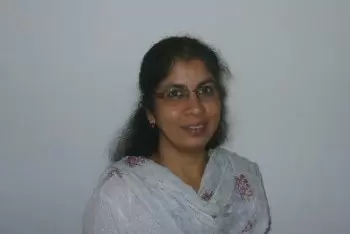 |
|
Meenu Vadhera of Azad Foundation says when women begin to earn they become more confident and independent
|
That moment of having actually become a driving professional is magical. Shanno felt she was “flying in the sky”. Hailing from a conservative Muslim family she had to completely reinvent herself to do this. “When my husband died of kidney failure, life lost all meaning. But I had to put food on the table and within 15 days was vending vegetables. I then opened a small ‘dhaba’ (roadside eatery). I would have been running it still, if this opportunity to learn driving hadn’t come my way.”
Today, she can reel out the names of the cars she has driven in a second: Omni, Xylo, Innova, Indigo, Swift, Accent, Santro and Tavera. She now wants to try her hand on an imported vehicle.
Of course, the road to professionalism has its share of red lights. “I remember, I had just finished my training and was apprenticing when I banged the car I was driving - a Santro – into an obstruction. It was so unnerving I thought I wouldn’t be able to drive again,” recalls Chandni. In fact, all the women drivers have such stories to tell, but they all learnt to keep their nerve.
Since professional driving has a 24X7 cycle, there is night duty to handle. “Some of the women don’t feel happy doing night duty and we don’t push them, but others are quite comfortable with it,” says Vadhera.
The women also have to face negative attitudinal responses. Sometimes those who hire them as their drivers treat them poorly, expecting them to double up as domestic help. There are those aggressive male drivers on the road who look askance on women driving, and some try to get physically intimate.
All these are reasons why training for her is not just about imparting a skill, not just about changing a punctured tyre or handing a minor engine problem, but it’s about preparing women to negotiate life on their terms.
And it is happening. All the women now have ambitions for themselves. Shanno is happy driving as long as she can and then she hopes to set up a driving school. Chandni wants to enrol for her Bachelors degree next year, while Saroj is already doing her first year of BA. Marriage is not on the cards, she says firmly.
It is this transformation that Vadhera is really looking for, “We believe that when we are working with a group of women, it is not enough to impart skills. Training for us is more than driving. It is about empowerment. It’s about redefining driving as a woman’s preserve.” – Women’s Feature Service








